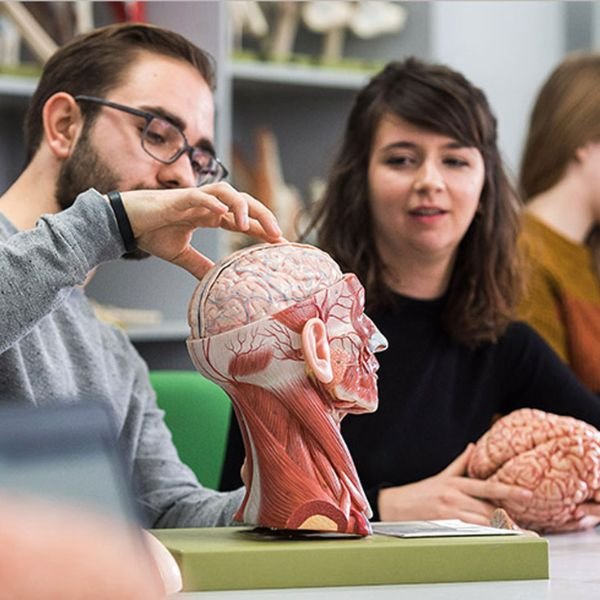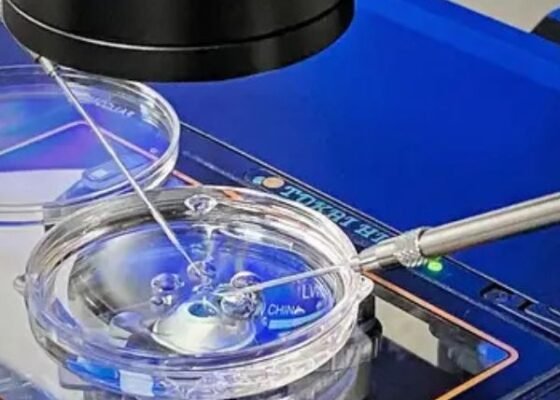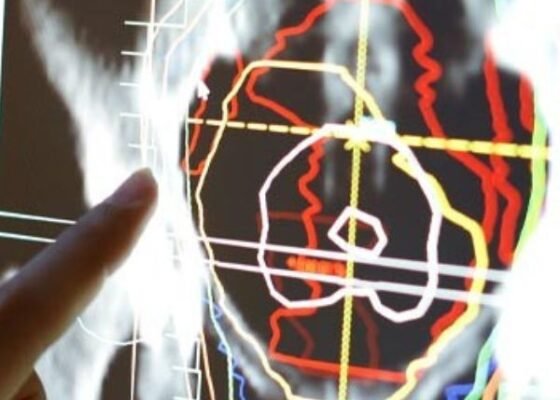BSc Neuroscience Technology colleges in Bangalore
Table of Contents
ToggleWhat is Neuroscience technology?
The human brain has long been considered the most intricate and fascinating organ in our bodies, responsible for our thoughts, emotions, memories, and behaviours.
Neuroscience technology is a rapidly evolving field that aims to provide a deeper understanding of the complex workings of the brain, leading to ground-breaking innovations in various sectors.
From medical advances in treating neurological disorders to enhancing artificial intelligence, neuroscience technology has the potential to revolutionize our understanding of the human mind.
Defining Neuroscience Technology
Neuroscience technology is a multidisciplinary field that combines various scientific and technological approaches to study the structure, function, and development of the nervous system. It encompasses the fields of neurobiology, psychology, computer science, engineering, and more, to develop novel methods and tools that help us decipher the mysteries of the brain.
Key Areas of Neuroscience Technology
Neuroimaging
Neuroimaging is a crucial aspect of neuroscience technology, providing researchers with the ability to visualize and analyze the brain’s structure and function. Techniques such as functional magnetic resonance imaging (fMRI), positron emission tomography (PET), and electroencephalography (EEG) allow scientists to monitor brain activity, examine neural networks, and investigate the impact of various factors on cognitive and emotional processes.
Brain-Computer Interfaces (BCIs)
BCIs are systems that facilitate direct communication between the brain and external devices. By interpreting neural signals, these interfaces enable individuals to control computers, robotic limbs, or other electronic devices using only their thoughts. BCIs hold great potential for improving the quality of life for those with mobility impairments or neurological disorders, such as paralysis or locked-in syndrome.
Neuromodulation
Neuromodulation refers to the alteration of neural activity through targeted delivery of electrical, chemical, or optical stimuli. Techniques like deep brain stimulation (DBS) and transcranial magnetic stimulation (TMS) have demonstrated significant promise in the treatment of various neurological disorders, including Parkinson’s disease, depression, and chronic pain. Furthermore, optogenetics – a technique that utilizes light-sensitive proteins to manipulate neural activity – has emerged as a powerful tool for understanding the brain’s circuitry and function.
Neuroprosthetics
Neuroprosthetics are devices that replace or enhance the function of damaged or missing neural structures. Cochlear implants, for example, have transformed the lives of individuals with severe hearing loss by bypassing damaged auditory structures and directly stimulating the auditory nerve. Similarly, retinal implants aim to restore vision in those with degenerative eye conditions, such as retinitis pigmentosa or age-related macular degeneration.
Artificial Intelligence and Machine Learning
The integration of artificial intelligence (AI) and machine learning into neuroscience technology has opened up new avenues for understanding the brain’s complexity. By employing algorithms that can analyze vast amounts of data, researchers can identify patterns and correlations that would otherwise remain hidden. This has led to advancements in areas such as neural network modeling, neuroinformatics, and brain-inspired computing.
Top BSc Neuroscience Technology Colleges in Bangalore
Bangalore, the Silicon Valley of India, is not only a hub for technology and innovation but also a thriving center for education. With a strong focus on science and research, the city is home to several esteemed institutions offering undergraduate programs in neuroscience technology. A Bachelor of Science (BSc) in Neuroscience Technology equips students with the knowledge and skills required to excel in this rapidly evolving field. In this article, we explore the top BSc Neuroscience Technology colleges in Bangalore that can pave the way for a successful career in neuroscience.
National Institute of Mental Health and Neurosciences (NIMHANS)
NIMHANS is a premier institute for mental health and neurosciences in India, providing top-notch education, research, and patient care. The institute offers a highly regarded BSc in Neuroscience Technology program that combines theoretical knowledge with hands-on experience. Students benefit from state-of-the-art facilities, experienced faculty, and a multidisciplinary approach that prepares them for a wide range of career opportunities in neuroscience research, clinical practice, and academia.
Bangalore University
Bangalore University, one of the oldest and most respected educational institutions in the city, offers a comprehensive BSc program in Neuroscience Technology. The curriculum covers essential topics such as neuroanatomy, neurophysiology, neuroimaging, and neuropharmacology. The program emphasizes research-oriented learning, providing students with access to well-equipped laboratories and fostering collaborations with renowned research centers and institutes.
Christ University
Christ University, a leading private institution in Bangalore, offers a BSc in Neuroscience Technology that combines a strong theoretical foundation with practical experience. The program’s curriculum is designed to provide students with a deep understanding of the nervous system and its disorders while promoting the development of critical thinking and problem-solving skills. Students at Christ University have access to state-of-the-art facilities and are encouraged to participate in internships and research projects to gain invaluable real-world experience.
Jain University
Jain University is a renowned private institution in Bangalore known for its commitment to excellence in education and research. The university offers a BSc in Neuroscience Technology program that aims to equip students with a solid foundation in the principles of neuroscience, neuroanatomy, neurophysiology, and more. The program also emphasizes the importance of hands-on training and research exposure, helping students develop the skills necessary for a successful career in neuroscience.
Ramaiah Institute of Technology
Ramaiah Institute of Technology, a prestigious institution in Bangalore, offers an undergraduate program in Neuroscience Technology that fosters a strong foundation in the fundamental principles of neuroscience. The curriculum covers a broad range of topics, including neuroanatomy, neurophysiology, and neuropharmacology, while also providing students with hands-on experience in advanced laboratory techniques. The institute’s well-equipped facilities and highly qualified faculty create an enriching learning environment that prepares students for a successful future in the field of neuroscience.
What students study in BSC Neuroscience technology in Bangalore?
A Bachelor of Science (BSc) in Neuroscience Technology is a multidisciplinary undergraduate program that offers students a comprehensive understanding of the nervous system and its underlying processes. The program integrates concepts from biology, psychology, physics, and computer science, enabling students to explore the complexities of the brain and develop a strong foundation in neuroscience. In this article, we examine the key areas of study in a BSc Neuroscience Technology program, providing insight into what students can expect to learn during their academic journey.
Neuroanatomy and Neurophysiology
Neuroanatomy focuses on the structure and organization of the nervous system, providing students with an understanding of the brain’s different regions, cells, and neural pathways. Neurophysiology, on the other hand, delves into the function of neurons and the mechanisms that govern their electrical and chemical activities. These core subjects form the basis for understanding the complex interactions within the nervous system and lay the groundwork for further study in neuroscience.
Cellular and Molecular Neuroscience
In this area of study, students explore the cellular and molecular processes that underlie neural function. Topics include neurotransmitter synthesis, release, and reuptake; the structure and function of ion channels and receptors; and the role of genes in neural development, function, and plasticity. This knowledge enables students to appreciate the intricate molecular events that contribute to the brain’s overall function.
Cognitive Neuroscience
Cognitive neuroscience investigates the neural basis of various cognitive processes, such as attention, perception, memory, language, and decision-making. Students learn how to interpret and analyze data from neuroimaging techniques like functional magnetic resonance imaging (fMRI) and electroencephalography (EEG) to understand how the brain supports cognitive functions.
Developmental Neuroscience
Developmental neuroscience examines the formation and maturation of the nervous system, from embryonic development to adulthood. Students study the processes that govern neural differentiation, migration, and synapse formation, as well as the factors that influence neural plasticity and regeneration. This area of study helps students understand how the nervous system changes over time and the factors that can impact its development.
Systems Neuroscience
Systems neuroscience focuses on the organization and function of neural circuits and systems that contribute to specific behaviors and cognitive processes. Students learn about the principles of sensory processing, motor control, and neural networks, as well as the mechanisms that underlie higher cognitive functions, such as learning, memory, and emotion.
Computational Neuroscience and Neural Modeling
Computational neuroscience and neural modeling involve the use of mathematical and computational tools to analyze and simulate neural systems. Students learn how to develop and test models of neural circuits and brain networks, which can help to uncover the principles that govern the brain’s function and organization.
Neuropharmacology
Neuropharmacology examines the effects of drugs and other chemical agents on the nervous system. Students explore the mechanisms of action of various drugs, their therapeutic applications, and potential side effects. This knowledge is essential for understanding the treatment of neurological disorders and the development of new pharmacological interventions.
Research Methods and Techniques
A critical component of a BSc Neuroscience Technology program is the introduction to research methods and techniques used in the field. Students learn essential laboratory skills, such as electrophysiology, histology, and molecular biology techniques, as well as data analysis and interpretation. This hands-on experience prepares students for research-oriented careers in academia, industry, or clinical settings.
Scope after Studying BSC in Neuroscience technology in Bangalore
The field of neuroscience technology is witnessing rapid growth, driven by continuous advancements in research and the increasing prevalence of neurological disorders. As a result, there is a growing demand for skilled professionals who can contribute to the understanding of the human brain and the development of innovative treatments. A Bachelor of Science (BSc) in Neuroscience Technology lays the foundation for a successful career in this exciting domain. In this article, we explore the diverse career prospects and opportunities that await graduates with a BSc in Neuroscience Technology.
Research Scientist
Graduates with a BSc in Neuroscience Technology can pursue careers in research, working in academic institutions, research laboratories, or pharmaceutical companies. As research scientists, they can contribute to the development of new knowledge about the nervous system, investigate the underlying causes of neurological disorders, and explore novel therapeutic strategies. A research career typically requires further education, such as a Master’s or PhD in neuroscience or a related field.
Clinical Neuroscientist
Clinical neuroscientists work in hospitals or clinical settings, using their expertise in neuroscience technology to diagnose, treat, and manage patients with neurological disorders. They may collaborate with neurologists, psychiatrists, and other medical professionals to provide comprehensive care for patients. Some clinical neuroscientists may also be involved in clinical trials, testing new drugs or therapies for neurological conditions. A career in clinical neuroscience often requires additional qualifications, such as a medical degree or a specialization in clinical neuropsychology.
Neuroimaging Specialist
Neuroimaging specialists utilize advanced imaging techniques like magnetic resonance imaging (MRI), functional MRI (fMRI), positron emission tomography (PET), and electroencephalography (EEG) to study the structure and function of the brain. They can work in hospitals, research institutes, or private imaging centers, where they analyze and interpret neuroimaging data to support diagnosis, treatment, and research endeavors.
Neuroscience Educator
Graduates with a BSc in Neuroscience Technology can pursue a career in education, teaching neuroscience-related courses in schools, colleges, or universities. They can help inspire and prepare the next generation of neuroscience professionals by sharing their knowledge and expertise. A career in academia usually requires further qualifications, such as a Master’s or PhD, as well as a passion for teaching and mentoring.
Neurotechnology Specialist
Neurotechnology specialists work with cutting-edge technologies such as brain-computer interfaces (BCIs), neuroprosthetics, and neuromodulation devices. They can be employed by medical device companies, technology firms, or research institutions, where they develop, test, and refine technologies that interact with the nervous system. This career path may require additional training in engineering or computer science, depending on the specific technologies involved.
Science Writer or Communicator
Graduates with a BSc in Neuroscience Technology and strong communication skills can pursue careers in science writing or communication. They can work as journalists, content creators, or public relations specialists for scientific journals, media organizations, or research institutions. Science communicators play a vital role in disseminating complex neuroscience concepts to a wider audience, increasing public understanding and appreciation of the field.
Pharmaceutical Industry
The pharmaceutical industry offers various opportunities for neuroscience technology graduates, such as research and development, drug discovery, and clinical trial management. Professionals in this sector work to develop new medications and therapies for neurological disorders, contributing to improved patient outcomes and quality of life.
Placement opportunities after Studying BSC in Neuroscience technology in Bangalore
Graduates with a Bachelor of Science (BSc) in Neuroscience Technology are entering a field marked by rapid growth and increasing demand for skilled professionals. The interdisciplinary nature of the program equips students with a comprehensive understanding of the nervous system and its underlying processes, which can be applied to a variety of sectors. In this article, we discuss the diverse placement opportunities available to graduates with a BSc in Neuroscience Technology, highlighting the potential industries and organizations where they can kickstart their careers.
Academic Institutions and Research Centers
Graduates can explore placement opportunities in academic institutions and research centers, working as research assistants or technicians. These roles involve supporting researchers in conducting experiments, analyzing data, and maintaining laboratory equipment. Opportunities in this sector can be found at universities, government research institutions, and private research facilities. These placements can also serve as a stepping stone toward pursuing a Master’s or PhD in neuroscience or a related field.
Hospitals and Healthcare Facilities
Hospitals and healthcare facilities offer placement opportunities for neuroscience technology graduates in various roles, such as neuroimaging technicians or clinical research coordinators. Neuroimaging technicians operate and maintain imaging equipment, assist in data analysis, and contribute to patient care. Clinical research coordinators, on the other hand, manage clinical trials and ensure adherence to protocols, working closely with clinical teams and research participants.
Pharmaceutical and Biotechnology Companies
Graduates with a BSc in Neuroscience Technology can find placement opportunities within the pharmaceutical and biotechnology industries. They can work in research and development, drug discovery, clinical trial management, or quality control. These roles involve contributing to the development and testing of new medications and therapies for neurological disorders, which have the potential to improve patient outcomes and quality of life.
Medical Device Companies
Medical device companies specializing in neurotechnology offer placement opportunities for neuroscience technology graduates. Roles in this sector include product development, testing, and regulatory affairs. Graduates can contribute to the advancement of cutting-edge technologies, such as brain-computer interfaces, neuroprosthetics, and neuromodulation devices, which can significantly impact the lives of individuals with neurological disorders or injuries.
Technology and Artificial Intelligence Firms
Graduates with a BSc in Neuroscience Technology can also find placement opportunities in technology and artificial intelligence (AI) firms. Their expertise in neural networks and brain function can contribute to the development of brain-inspired computing, machine learning algorithms, and AI systems that mimic human cognition. Roles in this sector may require additional training in computer science or engineering, depending on the specific technologies involved.
Government Agencies and Non-Governmental Organizations
Government agencies and non-governmental organizations (NGOs) focused on public health, mental health, or neurological disorders can provide placement opportunities for neuroscience technology graduates. These roles may involve research, policy development, program management, or public outreach. Graduates can contribute to the promotion of mental health and neurological disorder awareness, as well as support the development of policies and programs aimed at improving patient care and outcomes.
Science Communication and Publishing
Graduates with strong communication skills can explore placement opportunities in science communication and publishing. They can work as science writers, editors, or public relations specialists for scientific journals, media organizations, or research institutions. These roles involve translating complex neuroscience concepts into accessible content for a wider audience, increasing public understanding and appreciation of the field.
Conclusion
Neuroscience technology is a rapidly growing field that has the potential to revolutionize our understanding of the human brain and unlock the secrets of its extraordinary capabilities. As researchers continue to push the boundaries of knowledge, the resulting advancements in healthcare, AI, and beyond promise to significantly impact our lives and the way we interact with the world around us. With each new discovery, we draw closer to unraveling the enigma that is the human mind.
A BSc in Neuroscience Technology offers graduates a diverse array of placement opportunities across various industries and organizations. By leveraging their unique expertise in neuroscience, graduates can embark on successful careers that contribute to the advancement of knowledge and the development of innovative solutions for neurological disorders. The interdisciplinary nature of the program, coupled with the increasing demand for skilled professionals.





